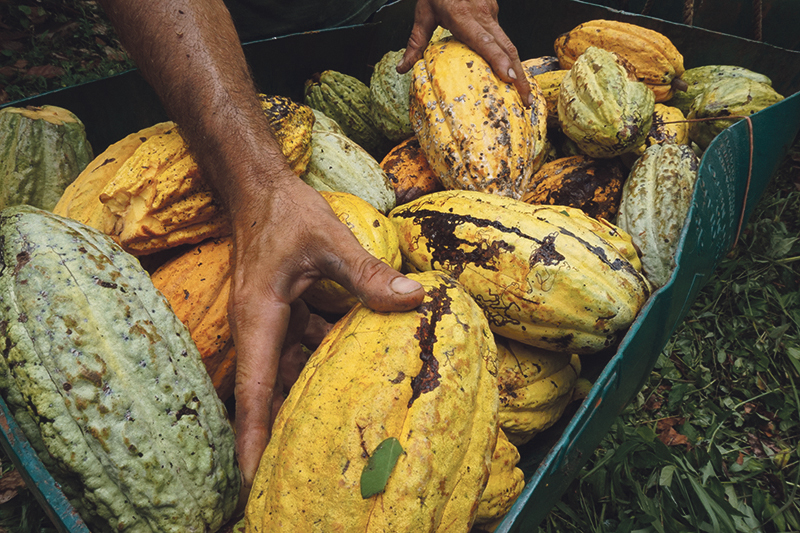Published in WelCom March 2021

Anne Powell RC
Children as young as 12 years old are picking cocoa in West Africa to make the chocolate we eat. Some of these children are trafficked. Most are forced to pick cocoa from an early age for minimal or no wages, for long hours, in dangerous working conditions, without any possibility of attending school. Most of these children have never tasted chocolate and they never will.
Chocolate eaters around the world have made a difference already. A decade ago, slavery-free chocolate was hard to find in our shops.
Today, some successes include:
- Cadbury dairy milk chocolate bars made in Australia have been certified Fairtrade.
- All Nestlé chocolate made in Australia and New Zealand is now UTZ certified (a programme and label for sustainable farming).
- Waikato Valley – suppliers of Easter Eggs and Bunnies to the Warehouse – say their chocolate is ethically sourced and human-trafficking free. Their cocoa supplier, Cargill, ‘has made a number of strong commitments in regard to their cocoa sourcing and supply, particularly around human rights, land rights and child labour’, – Waikato Valley spokesperson.
- All of Whittaker’s 116 chocolate products are now Rainforest Alliance certified.
- Often local or craft chocolatiers use ethically sourced cocoa products.

Anne Powell, Cenacle Sisters, for Talitha Kum Wellington.
What you can do
- Join with millions of people around the world who now buy and eat only slavery-free chocolate. To buy slavery-free Easter chocolate look for any of these certification labels on the wrappers: FAIRTRADE, Rainforest Alliance and UTZ.
- Talk about slavery-free chocolate – tell five friends or family members about slavery-free chocolate.
- Invite others in your community to join the slavery-free Easter campaign.
- If it is not slavery-free chocolate, then write to the manufacturer, and ask them when they plan to make the product using cocoa certified to be slavery free.
- If your favourite chocolate is slavery-free write to the manufacturer and congratulate them on what they are doing towards the reduction of child slavery in West Africa.
- Visit your local supermarket or café – if they stock slavery-free chocolate – and congratulate them. Also ask them to commit to doubling the amount of slavery-free chocolate they stock next Easter.
- Promote a slavery-free Easter in parish and school newsletters.
- Go to: slavefreechocolate.org or tradeaid.org.nz/chocolate or rainforest-alliance.org/tags/chocolate.
The post Slavery-free Easter chocolate first appeared on Archdiocese of Wellington.
Review of End of Life Choice Act: submissions now open
General
Published on 31st Aug, 2024
The first review, overseen by the Ministry of Health, is currently taking place [..]
Sisters conserve rare flag
General
Published on 31st Aug, 2024
A rare military flag has received much needed conservation work from the Carmelite Sisters [..]
Letter from Archbishop Paul Martin
General
Published on 5th Jun, 2024
A Vatican-led review of an abuse complaint against Cardinal John Dew dating to the 1970s has conclud [..]
'No Faith in Fossil Fuels' Climate Action Week
General
Published on 22nd Apr, 2024
We invite you to participate in No Faith in Fossil Fuels Climate Action Week from 3 May to 12 May [..]
May 2024 Funding Round | Catholic Charities Foundation
General
Published on 1st Mar, 2024
Applications for the May 2024 Catholic Charities funding round are now open [..]
